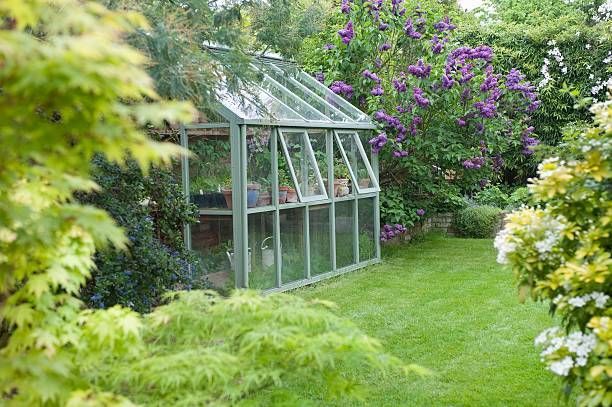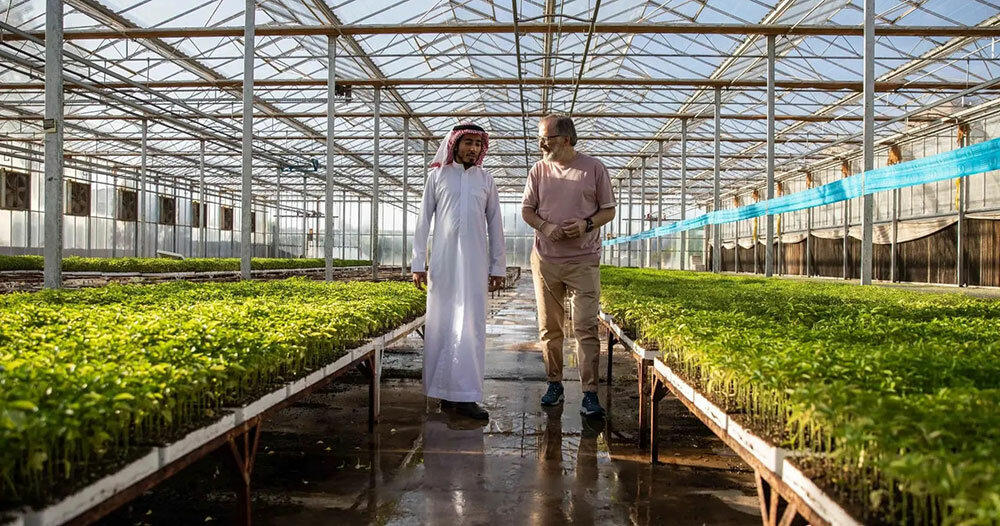Monarch Greenhouse Utah: Raising Expanding Rooms with Accuracy Construction
Wiki Article
Greenhouse Farming: Optimizing Crop Returns and Sustainability
With regulated atmospheres and reduced water usage, greenhouse farming offers the excellent solution for year-round manufacturing of fresh fruit and vegetables. Discover the advantages of greenhouse farming and begin gaining the advantages today!Benefits of Greenhouse Farming
Are you wondering what makes greenhouse farming so useful? One of the major advantages of greenhouse farming is the capacity to control the setting in which plants are expanded.Another advantage of greenhouse farming is the reduction in water use. By utilizing water a lot more effectively, greenhouse farming helps to save this precious source.
Additionally, greenhouse farming permits far better parasite and disease monitoring. With the regulated environment, it is simpler to manage the spread and avoid of parasites and illness. This lowers the requirement for dangerous chemicals, making greenhouse-grown crops much safer and a lot more eco-friendly.
Moreover, greenhouse farming provides security versus severe weather condition events. Plants grown in greenhouses are secured from heavy rain, strong winds, and hailstorms, which can harm or destroy outside crops. Monarch Greenhouse construction Utah. This protection ensures an extra reliable and secure plant return, also throughout unpredictable weather

Taking Full Advantage Of Crop Returns With Regulated Environments
To optimize plant returns in greenhouse farming, you can attain optimal outcomes by managing the setting. By thoroughly handling aspects such as temperature level, carbon, humidity, and light dioxide levels, you can produce the excellent conditions for your plants to thrive. Among the key advantages of greenhouse farming is the capability to manage these environmental variables, permitting you to customize them to the particular requirements of each crop. You can change the temperature to advertise faster growth throughout the day and lower it a little at night to simulate natural changes. You can manage moisture degrees to stop diseases and make certain appropriate transpiration. By offering the ideal quantity and top quality of light, you can expand the growing period and increase returns. Additionally, by regulating carbon dioxide levels, you can enhance photosynthesis and urge energetic development. By implementing these controlled atmospheres, you can take full advantage of crop yields and achieve consistent, top quality produce throughout the year.Encouraging Sustainability Via Greenhouse Farming
Make the most of sustainability in greenhouse farming by executing efficient source administration methods. One vital element of advertising sustainability is the monitoring of water use. By executing systems such as drip watering and recirculation, you can dramatically minimize water wastage and make certain that every decline counts. Additionally, using organic and biodegradable materials for parasite control and fertilizing can aid decrease environmental impact. Integrated Bug Administration (IPM) techniques, for instance, involve making use of useful insects to manage parasites, reducing the requirement for dangerous pesticides. Moreover, power consumption can be minimized by making use of renewable power sources, such as photovoltaic panels, to power greenhouse operations. This not only decreases dependence on nonrenewable fuel sources however also decreases greenhouse gas exhausts. Appropriate waste administration is another important component in advertising sustainability. Implementing recycling and composting systems can decrease the quantity of waste sent to garbage dumps while additionally giving nutrient-rich garden compost for plant development. Including sustainable methods in greenhouse design, such as making use of energy-efficient materials and optimizing all-natural lights, can further enhance sustainability. By embracing these source monitoring techniques, you can contribute to a more lasting future in greenhouse farming.Lowering Water Usage in Greenhouse Farming
By carrying out effective water administration methods, you can substantially decrease water use in greenhouse farming. Water is an important source in farming, and conserving it not only profits the environment however likewise aids to optimize crop yields and success. lush lawn One reliable technique to minimize water usage is via the use of drip watering systems. These systems deliver water directly to the plant's roots, minimizing evaporation and ensuring that every drop is made use of efficiently. Additionally, surveillance and controlling the moisture levels inside the greenhouse can prevent unneeded water loss. By utilizing sensing units and automated systems, you can adjust the ventilation and watering as necessary, maximizing water usage based on the particular requirements of your plants. Another strategy is to reuse and record rainwater. Collecting rainwater from the greenhouse roof covering and storing it in storage tanks enables you to supplement your watering requires without counting entirely on freshwater sources. In addition, implementing mulching strategies can help preserve dirt wetness, reducing the regularity of watering. Mulch function as a barrier, preventing water evaporation and maintaining the soil cool and moist. By taking on these water-saving techniques, you can lessen water waste, save resources, and produce a more sustainable future for greenhouse farming.Year-Round Manufacturing of Fresh Generate in Greenhouses
You can accomplish year-round production of fresh produce in greenhouses more by carrying out efficient cultivation strategies. Greenhouses supply a regulated setting that allows you to expand plants no matter the outside weather. One essential strategy for year-round production is making use of fabricated lighting. By supplementing all-natural sunlight with synthetic light, you can extend the growing period and make certain consistent growth throughout the year. LED lights are commonly utilized in greenhouses because they are energy-efficient and give the best spectrum of light for plant development. Additionally, correct temperature level control is critical for year-round manufacturing. Greenhouses can be geared up with heating and cooling down systems to preserve optimum temperature levels for different crops. This makes sure that plants can prosper even during the cooler months. Another crucial aspect is watering. By utilizing advanced watering systems such as drip irrigation or hydroponics, you can successfully give water to your plants while lessening waste. Finally, it is vital to on a regular basis check and take care of parasites and conditions. Carrying out integrated parasite monitoring methods and exercising excellent hygiene will certainly help secure your crops and preserve their wellness throughout the year. By applying these methods, you can make the most of the performance of your greenhouse and appreciate a steady supply of fresh generate all year long.
Conclusion
In verdict, greenhouse farming Find Out More provides numerous benefits for making the most of plant returns and advertising sustainability. By using controlled environments, farmers can enhance expanding conditions and boost performance. In addition, greenhouse farming enables minimized water use, making it an environmentally friendly choice. The capability to create fresh produce year-round in greenhouses makes certain a consistent supply of nourishing food (Monarch Farm Greenhouse Utah). In general, greenhouse farming is a reliable and sustainable technique for satisfying the needs of a growing population while lessening ecological impact.One of the significant advantages of greenhouse farming is the capability to regulate the environment in which crops are expanded.To optimize plant returns in greenhouse farming, you can attain optimal outcomes by controlling the setting. One of the key benefits of greenhouse farming is the capacity to control these environmental factors, allowing you to tailor them to the certain needs of each plant.By implementing reliable water management strategies, you can substantially decrease water usage in greenhouse farming.In conclusion, greenhouse farming gives countless benefits for making the most of plant yields and promoting sustainability.
Report this wiki page